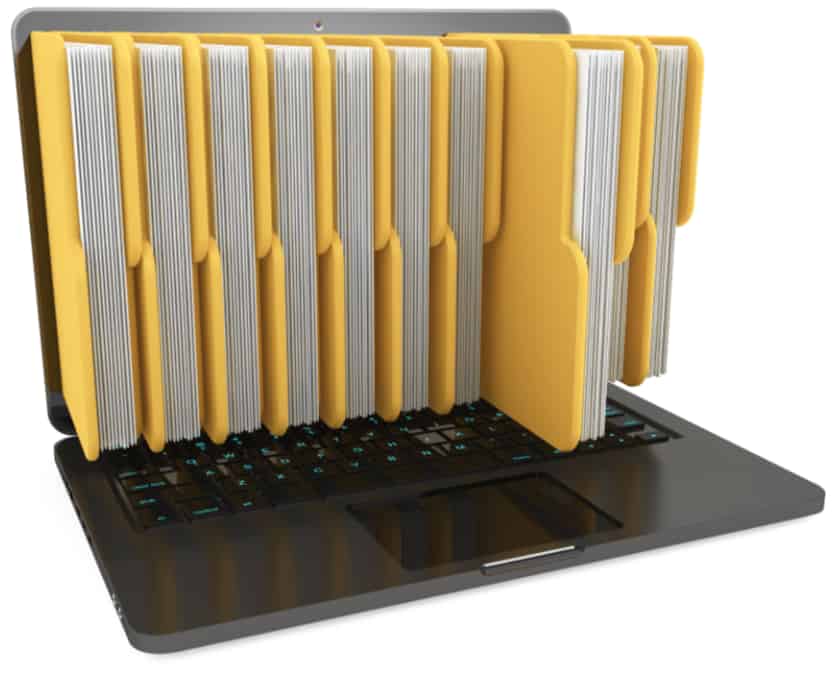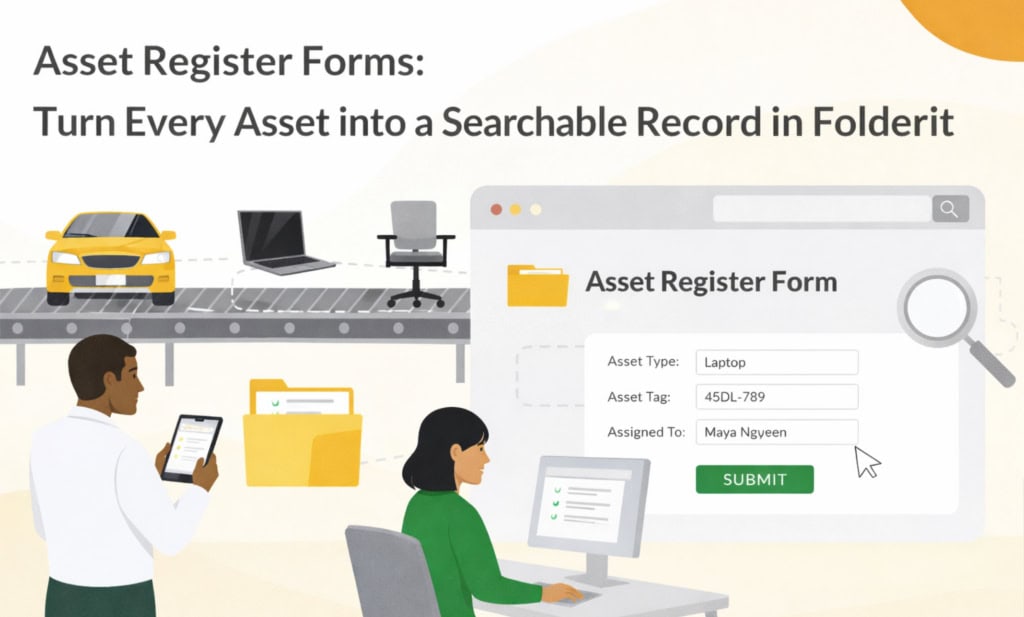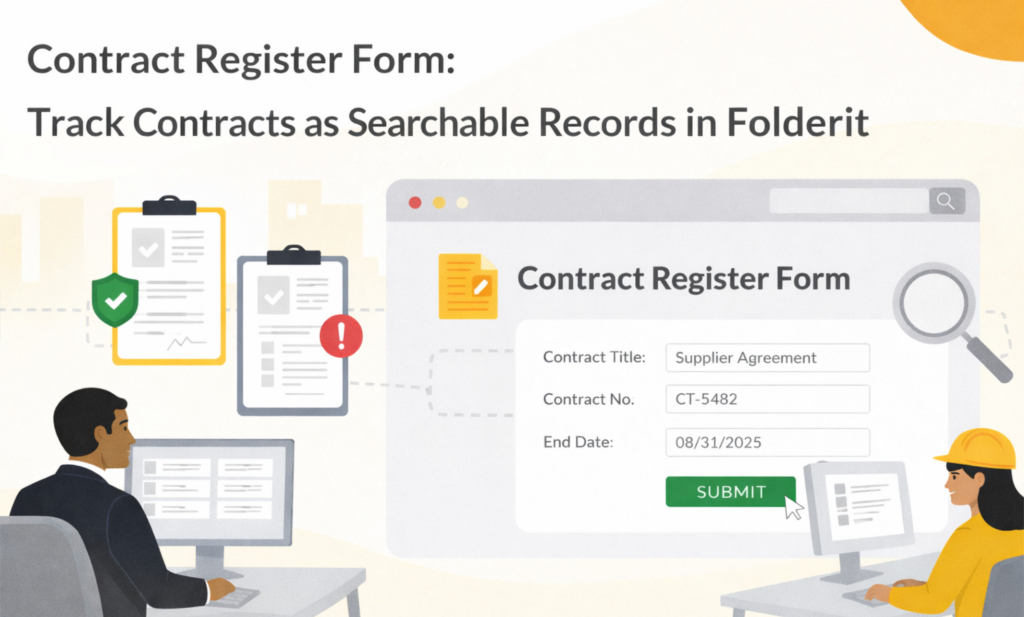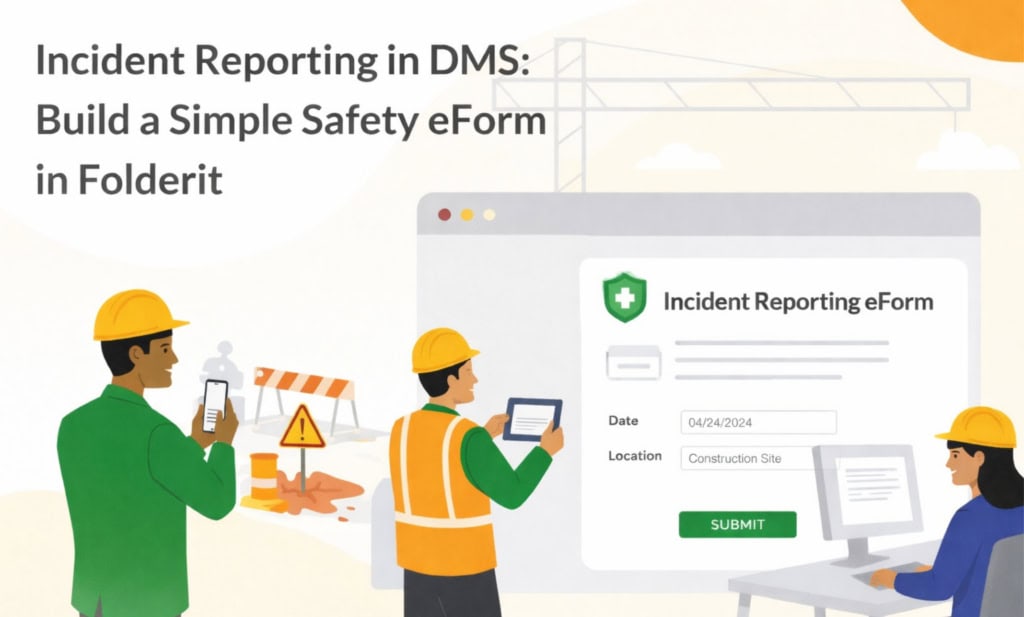
As businesses age, so do the trails of documents following them. The longer the trail, the more costly it becomes to store these files. Losing these documents might expose you to legal liabilities.
Document retention is one of the hard parts of running a business. In some scenarios, you might even end up keeping files for 7 years. Folderit can help you address both the storage and retention problem.
Folderit for Keeping files for 7 years
Folderit, by default, will store your files till the end of time. However, if you want to put an expiry on a file, or entire folder, Folderit can accommodate that for you. You can set up a timer, the end of which the end of which can either send designated files/folders to the recycle bin, or delete them permanently (depending on how you configure it).
Keeping in mind, in certain situations you might want to retain some files/folders and discard the others, to that end, you can set up an expiry for each item individually.
In certain legal scenarios, like taxation, or contracts, you might be required to retain documents for up to 7 years. Or, you might be keeping files for 6 years, refer to the table for a list of retention requirements as per IRS, CPA, FDIC, and other governing body’s policies. Please note, that any number with an * means the retention period starts only after the termination, disposal, expiration of the contract/item.
Folderit is safe and secure for keeping business documents
In some scenarios, while retention is required, making the file available for open viewing might not make good business sense. To ensure that your stored content is under strict lock and key, all your folder access is protected under 256-bit bank-level encryption and all online transactions take place under Secure SSL encryption. So, you can be confident that your content is safe from any unauthorized access.
Moreover, you might even want to limit how much access your own teams have to your documents, e.g. we don’t need IT to have access to Tax documents. This distinction can be enforced through permissions access. You can limit how much access which user has to how much of your files/folders.
Say, if someone in finance needs to refer to tax documents without changing them, they can have read-only access. Meanwhile, documents that are not relevant to certain users can be set up that it never even appears in their view.
Enforce an internal document retention policy
Other than legal issues, there might be a need within a business to set up an internal document retention policy. For example, your communications, like email, access audit trails (available natively in Folderit), minutes of the meetings, memos, etc. all need to be kept track of for a certain time. You can set it up such that this content is retained for a certain amount of time and then discarded afterwards.
Conclusion
Whether you are keeping files for 7 years, or you are keeping files for 6 years, whatever the timeline for retention, Folderit can keep your content for your as long as you need and then promptly help you discard it as soon as you want.
How long to keeep business files?
Depends on the regulations of the country you’re in but very often they look like this:
| BUSINESS DOCUMENTS | Years of retention |
| Contracts | 6* |
| General Correspondence | 6* |
| Deeds | Permanent |
| License, traffic and purchase (correspondence) | 6 |
| Mortgages and note agreements | 6* |
| Patents Permanent Production (correspondence) | 8 |
| FINANCIAL DOCUMENTS | Years of retention |
| Auditors’ reports | Permanent |
| Bank debt deduction | 7 |
| Bank deposit slips, reconciliations, statements | 4 |
| Bills of lading | 4 |
| Budgets | 2 |
| Checks – cancelled | 4 |
| Contracts – purchase and sales | 4* |
| Credit memos | 4 |
| Depreciation records | 4* |
| Employee expense reports | 4 |
| Employee payroll records (W2, W-4, annual earnings records, etc.) | 6* |
| Financial statements – annual | Permanent |
| Financial statements – interim | 4 |
| Freight bills | 4 |
| Internal reports (work orders, sales reports, production reports) | 4 |
| Inventory lists | 4 |
| Invoices – sales and cash register receipts, merchandise purchases | 4 |
| Invoices – purchases (permanent assets) | 4* |
| General ledger | Permanent |
| General, cash receipts, cash disbursement, and purchase journals | Permanent |
| Payroll journal | 4 |
| Subsidiary ledgers (accounts receivable, accounts payable, etc.) | 6 |
| Time cards | 4 |
| Worthless securities | 7 |
| INSURANCE DOCUMENTS | Years of retention |
| Accident reports | 6 |
| Claims – after settlement | 10 |
| Fire inspection reports | 6 |
| Group disability reports | 8 |
| Policies – all types – expired | 4 |
| Insurance policies | 6* |
| Safety reports | 8 |
| Settled insurance claims | 4* |
| PERSONNEL | Years of retention |
| Attendance records | 7 |
| COBRA records | 4 |
| Contracts – expired | 6 |
| Dental benefits | 5 |
| Daily time reports | 6 |
| Disability and sick benefit records | 6 |
| Employment applications – not hired | 3 |
| Employee benefit plans | 2* |
| Employee medical history | 7 |
| Medical benefits | 7 |
| OSHA logs | 6 |
| Performance record – after termination | 7 |
| Personnel files – terminated | 7* |
| Withholding tax statements | 6 |
| PURCHASING AND SALES | Years of retention |
| Purchase orders | 7 |
| Requisitions | 3 |
| Sales contracts | 3 |
| Sales invoices | 3 |
| TAX DOCUMENTS | Years of retention |
| Payroll tax returns | 4 |
| Pension/profit-sharing informational returns | Permanent |
| Sales and use tax returns | Permanent |
| Tax returns and cancelled checks (federal, state and local) | Permanent |
| TRAFFIC – SHIPPING AND RECEIVING | Years of retention |
| Export declarations | 4 |
| Freight bills | 4 |
| Manifests | 4 |
| Shipping and receiving reports | 4 |
| Waybills and bills of lading | 4 |
References:
http://www.businessarchives.com/document-retention-requirements.asp
http://www.cpa.net/resources/retengde.pdf
http://www.fdic.gov/regulations/laws/rules/6500-2400.html
http://www.irs.gov/businesses/small/article/0,,id=98575,00.html






